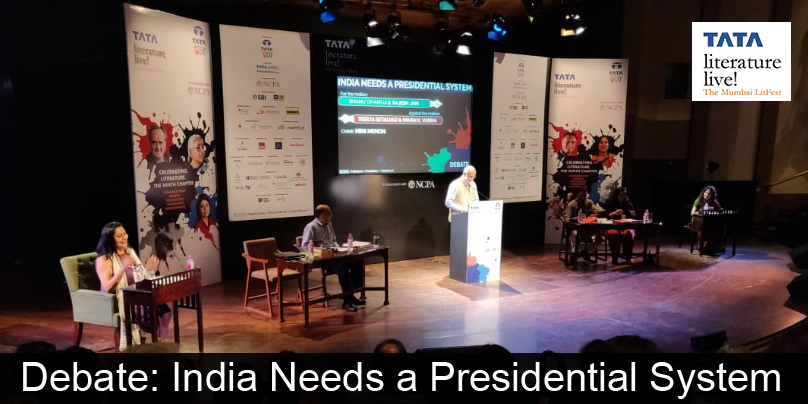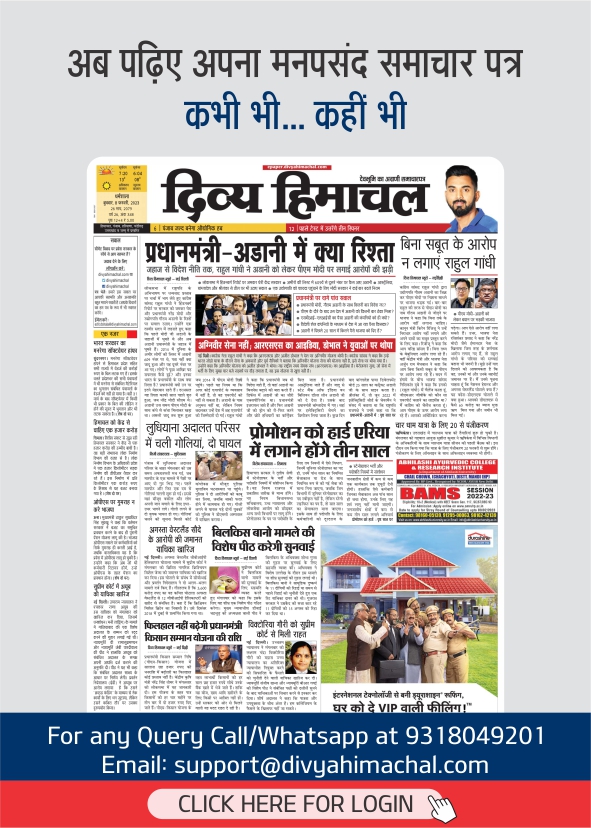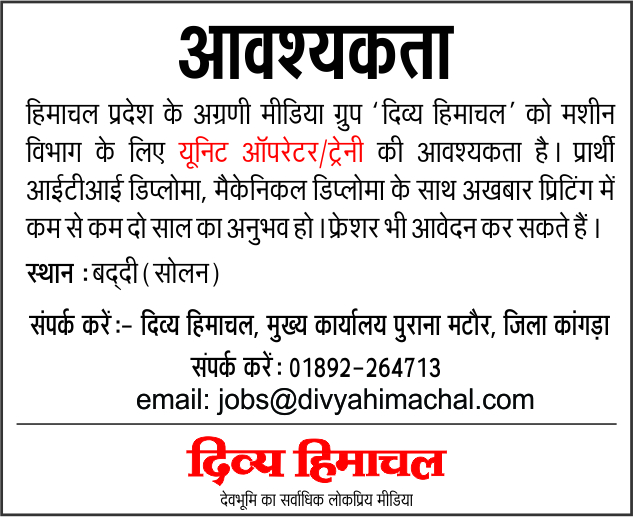Diverse Societies Require Decentralized Governments: Bhanu Dhamija
Bhanu Dhamija
Founder of Divya Himachal & Author of ‘Why India Needs the Presidential System’
TATA LITERATURE LIVE 2018 (MUMBAI LITFEST) HELD A DEBATE ON “INDIA NEEDS A PRESIDENTIAL SYSTEM” ON NOVEMBER 15, 2018. SPEAKING IN FAVOR OF THE MOTION, BHANU DHAMIJA, AUTHOR WHY INDIA NEEDS THE PRESIDENTIAL SYSTEM, DELIVERED THE FOLLOWING OPENING REMARKS…
Good evening.
Before I talk about the benefits of the presidential system for our country…
Let me begin with an appeal… Let’s not make this a partisan issue. The way our country is governed is incredibly important to our children’s future. So rather than turn this into a blame game, let’s start with the premise that all our Prime Ministers, from Nehruji to Modiji, are patriots. They do what they think is best for the country. Let’s talk about the system, not the people.
The failures of our system are not the failures of the Indian people. We have a tendency of calling our countrymen names, that they are corrupt, illiterate, or stupid, whenever there is a national problem. But if these epithets were true, why is it that when Indians emigrate to other countries, we become some of their top producers and most respected citizens?
Oratory is not substance. We shouldn’t be swayed by those who make us emotional about India’s past glory. We ARE a great people with a noble heritage. But greatness has to be earned every single day. Talking about India’s rich past may be a winning political tactic, but it’s no strategy for future governance.
In my arguments for considering an American-style presidential system, I am certainly NOT implying that Americans are superior people. But their system of government is.
What is the presidential form of government?
It is easy to understand. It has the same three branches of government—executive, legislative, and judiciary—but unlike our system, they have been structured to be truly separate. Also the top official of each branch is elected directly by the people. And Judges, in America, do not appoint themselves. They are appointed after much public scrutiny, jointly by the President and Senators.
These are not minor differences. They make each branch independent, and thus truly able to act as a check on the others.
When the survival of the executive depends on the legislature, or vice versa, as is the case in India, checking each other becomes meaningless.
State governments in America cannot be dissolved by the Centre. The US has no provision that comes even close to our absurd and much abused President’s Rule.
And finally, under that system, local governments are created by the states themselves. There are nearly 90,000 local government bodies in America, from school districts to public utilities to ambulance services. All run by local citizens.
So this is it. Three layers of government: federal, state, and local. Each with three separate branches, truly independent of each other. Working under a system of checks and balances.
That system was invented in the late 1700s by James Madison, George Washington and others who were intimately familiar with the failings of the British Parliamentary system. They created this as a better alternative. And I think we can all agree that this system has worked pretty well for America.
What are the presidential system’s main benefits to India…
Contrary to its name, the presidential system cannot be controlled by a single person. State governments are entirely beyond the Center’s control. Even at the Center, a president does not control the legislature. He cannot make laws. He cannot choose which laws to enforce. He cannot declare war. He cannot fund an army. He cannot use the investigative agencies at will. He cannot even hire his own cabinet without the legislature’s approval.
The presidential system also provides better protection against corruption. All ministers answer directly to the legislature. Even their Secretary of Defense has to answer tough questions in public.
The presidential system also limits the role of government. Every new program requires legislature’s approval, and can be stopped by the courts. This restricts governments from doling out taxpayer money. But here, our governments not only abuse our tax money for buying votes, they make our citizens more dependent on government.
The presidential system also eliminates vote bank politics. Candidates are not chosen by party bosses on the basis of caste or religion. They have to win in large constituencies, through primary elections. It is nearly impossible for any Senator, for example, to win a statewide election based on vote bank politics.
Another benefit, desperately needed in today’s India, is an efficient and transparent judiciary. Their judiciary is decentralized, because states manage their own. And it’s accountable, because legislatures can create or modify subordinate courts.
Finally, and most importantly for us, the presidential system is designed for a diverse society. It offers true federalism, giving local governments autonomy to serve people of different cultures and ethnicities. America is more heterogeneous than even India. It has people of seven different races, from every religion on the planet, who speak 350 different languages.
Diverse societies require decentralized governments. But this is something at which our so-called Strong Centre is a miserable failure.
Let me debunk a common myth… that the US system is authoritarian.
In fact, it’s just the opposite. It’s our system that produces the autocrats. In the 230 years of US history, no President has ever been able to act autocratically. But in 70 years of our own history, we can cite at least two Prime Ministers who have been terribly autocratic.
The truth is, that system slams autocrats down immediately. Donald Trump’s wings began to be clipped within days of his coming to office. And the recent midterms have cut him down even further. In fact, Trump’s story highlights two key strengths of the presidential system: That a non politician can rise to the highest office, and that if he overreaches or falters, he is stopped from running amok.
Ladies and gentlemen, there is a reason that the likes of Ambedkar, Patel, and Vajpayee believed India should govern itself using key features of the Presidential system. I hope you look into this important matter further.
Thank you. Jai Hind!
Keep watching our YouTube Channel ‘Divya Himachal TV’. Also, Download our Android App
















